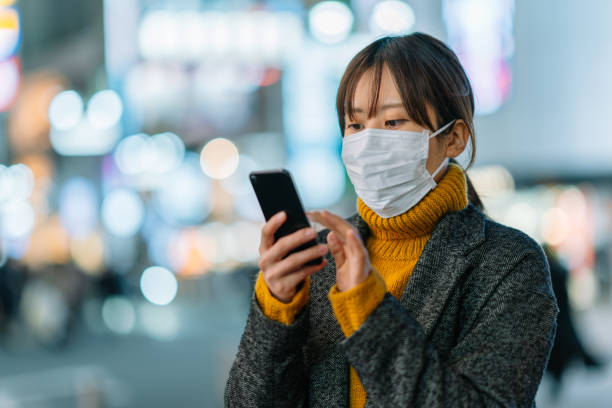The Coronavirus Pandemic: Unveiling the Global Challenge
Introduction
The emergence of the coronavirus, scientifically known as SARS-CoV-2, has led to a global pandemic of unprecedented proportions. The virus, first identified in late 2019 in Wuhan, China, quickly spread across borders, infecting millions and disrupting daily life in ways never imagined. This essay delves into the multifaceted impact of the coronavirus, highlighting its origins, transmission, socio-economic ramifications, and the collective response of nations to combat its spread.
Origins and Transmission
The coronavirus, a novel member of the coronavirus family, found its origin in bats and is believed to have been transmitted to humans through an intermediate animal host. The outbreak's epicenter in Wuhan was initially linked to a seafood market, where live animals were also sold, providing an opportunity for interspecies transmission. The virus's ability to spread among humans through respiratory droplets propelled it to pandemic status.
The virus's rapid transmission compelled governments worldwide to enforce lockdowns, travel restrictions, and social distancing measures. The concept of 'flattening the curve' became a rallying cry, emphasizing the importance of slowing the virus's spread to avoid overwhelming healthcare systems.
Socio-Economic Impact
The pandemic triggered a global socio-economic crisis, affecting various sectors. With businesses shutting down to curb the virus's spread, unemployment rates skyrocketed, causing financial distress for countless families. The service industry, including tourism, hospitality, and entertainment, was particularly hard-hit. Small businesses struggled to survive, and stock markets experienced unprecedented volatility.
Education faced a paradigm shift, as schools and universities closed their physical campuses and transitioned to online learning. This highlighted the digital divide, where students in marginalized communities faced unequal access to quality education due to a lack of technology or reliable internet connections.
Healthcare systems strained under the influx of patients, revealing the vulnerability of global healthcare infrastructure. The shortage of medical supplies, personal protective equipment (PPE), and ventilators exposed the need for greater preparedness and international collaboration.
Global Response and Medical Advances
Governments worldwide implemented strategies to curb the virus's spread, such as mass testing, contact tracing, and quarantines. Researchers worked tirelessly to understand the virus's behavior and develop treatments and vaccines.
The scientific community achieved a remarkable feat by developing multiple vaccines in record time. Vaccination campaigns were initiated globally, aiming to achieve herd immunity and ultimately control the virus's spread. The development and distribution of vaccines highlighted the importance of international collaboration and the role of science in addressing global challenges.
Social and Psychological Impact
The pandemic's prolonged isolation and uncertainty took a toll on mental health. Lockdowns and social distancing measures led to feelings of loneliness, anxiety, and depression. The increased screen time, coupled with limited physical activity, posed health risks and exacerbated these psychological challenges.
However, the pandemic also fostered resilience and creativity. Virtual gatherings, online events, and digital platforms emerged as a means of maintaining connections and uplifting spirits. Communities rallied together to support vulnerable members, exemplifying the strength of human compassion in times of crisis.
Lessons for the Future
The coronavirus pandemic unveiled numerous lessons that will shape our approach to future challenges. Preparedness and investment in healthcare infrastructure are imperative. The need for accurate information dissemination became evident, as misinformation and conspiracy theories spread as rapidly as the virus itself.
The importance of scientific research and international collaboration was underscored by the vaccine development process. Countries must work together to address global threats, transcending geopolitical boundaries. The pandemic demonstrated the significance of flexibility and adaptability, as remote work and digital solutions became essential for business continuity.
Conclusion
The coronavirus pandemic has showcased the vulnerability of humanity in the face of a rapidly spreading virus. It revealed both the weaknesses and strengths of societies around the world. While the pandemic inflicted immense suffering, it also ignited unity, innovation, and a renewed appreciation for healthcare workers and scientific advancements. As nations collectively combat the virus and endeavor to rebuild, the lessons learned will guide us towards a more prepared, connected, and resilient future.
Introduction
The emergence of the coronavirus, scientifically known as SARS-CoV-2, has led to a global pandemic of unprecedented proportions. The virus, first identified in late 2019 in Wuhan, China, quickly spread across borders, infecting millions and disrupting daily life in ways never imagined. This essay delves into the multifaceted impact of the coronavirus, highlighting its origins, transmission, socio-economic ramifications, and the collective response of nations to combat its spread.
Origins and Transmission
The coronavirus, a novel member of the coronavirus family, found its origin in bats and is believed to have been transmitted to humans through an intermediate animal host. The outbreak's epicenter in Wuhan was initially linked to a seafood market, where live animals were also sold, providing an opportunity for interspecies transmission. The virus's ability to spread among humans through respiratory droplets propelled it to pandemic status.
The virus's rapid transmission compelled governments worldwide to enforce lockdowns, travel restrictions, and social distancing measures. The concept of 'flattening the curve' became a rallying cry, emphasizing the importance of slowing the virus's spread to avoid overwhelming healthcare systems.
Socio-Economic Impact
The pandemic triggered a global socio-economic crisis, affecting various sectors. With businesses shutting down to curb the virus's spread, unemployment rates skyrocketed, causing financial distress for countless families. The service industry, including tourism, hospitality, and entertainment, was particularly hard-hit. Small businesses struggled to survive, and stock markets experienced unprecedented volatility.
Education faced a paradigm shift, as schools and universities closed their physical campuses and transitioned to online learning. This highlighted the digital divide, where students in marginalized communities faced unequal access to quality education due to a lack of technology or reliable internet connections.
Healthcare systems strained under the influx of patients, revealing the vulnerability of global healthcare infrastructure. The shortage of medical supplies, personal protective equipment (PPE), and ventilators exposed the need for greater preparedness and international collaboration.
Global Response and Medical Advances
Governments worldwide implemented strategies to curb the virus's spread, such as mass testing, contact tracing, and quarantines. Researchers worked tirelessly to understand the virus's behavior and develop treatments and vaccines.
The scientific community achieved a remarkable feat by developing multiple vaccines in record time. Vaccination campaigns were initiated globally, aiming to achieve herd immunity and ultimately control the virus's spread. The development and distribution of vaccines highlighted the importance of international collaboration and the role of science in addressing global challenges.
Social and Psychological Impact
The pandemic's prolonged isolation and uncertainty took a toll on mental health. Lockdowns and social distancing measures led to feelings of loneliness, anxiety, and depression. The increased screen time, coupled with limited physical activity, posed health risks and exacerbated these psychological challenges.
However, the pandemic also fostered resilience and creativity. Virtual gatherings, online events, and digital platforms emerged as a means of maintaining connections and uplifting spirits. Communities rallied together to support vulnerable members, exemplifying the strength of human compassion in times of crisis.
Lessons for the Future
The coronavirus pandemic unveiled numerous lessons that will shape our approach to future challenges. Preparedness and investment in healthcare infrastructure are imperative. The need for accurate information dissemination became evident, as misinformation and conspiracy theories spread as rapidly as the virus itself.
The importance of scientific research and international collaboration was underscored by the vaccine development process. Countries must work together to address global threats, transcending geopolitical boundaries. The pandemic demonstrated the significance of flexibility and adaptability, as remote work and digital solutions became essential for business continuity.
Conclusion
The coronavirus pandemic has showcased the vulnerability of humanity in the face of a rapidly spreading virus. It revealed both the weaknesses and strengths of societies around the world. While the pandemic inflicted immense suffering, it also ignited unity, innovation, and a renewed appreciation for healthcare workers and scientific advancements. As nations collectively combat the virus and endeavor to rebuild, the lessons learned will guide us towards a more prepared, connected, and resilient future.




